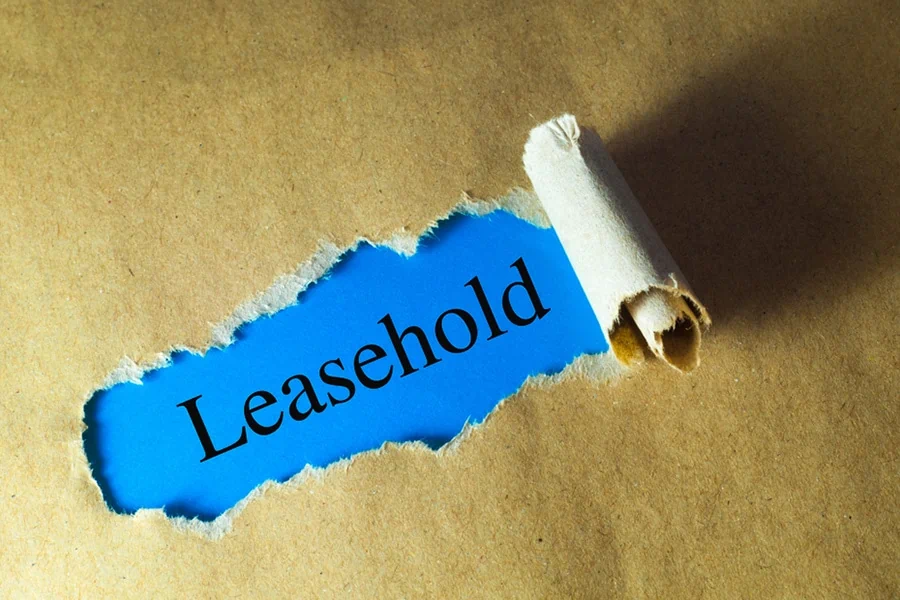
- Unlocking the Secrets of Property Ownership: Navigating the Maze of Leasehold and Freehold Properties.
- Discover the key differences, pros, and cons that shape your buying and selling decisions.
- Get ready to unravel the mysteries and make informed choices in the world of real estate.
Ooo goodness! Sometimes when we think about buying or selling a property, there is just so much to it, numerous things to consider and the options that lie right in front of our eyes brings us to think between which decision to make and what to do.
We frequently see developers using the word “FREEHOLD” in large, strong letters on billboards and outdoor banners to promote the appeal of their new launch projects. Undoubtedly, freehold houses sell far more quickly than leasehold ones. I’m sure that for many of us, our parents occasionally chose a freehold home instead, but have we ever really understood why? What drove them to make those choices?
The main distinction between freehold and leasehold, for those who are unfamiliar, is whether you own the land your home is built on or not. By definition, you are the sole owner of freehold properties and the government has no influence over them. A property with a leasehold title, on the other hand, is owned by the government and is solely the owner’s for the following 30, 60, 99, or 999 years. The land will revert to the State authority at the end of the leasing period unless it has been renewed.
From a Buyer’s Perspective

From the standpoint of the buyer, leasehold homes can have several benefits. Since you are effectively buying the leasehold rights rather than the complete property, they are typically more affordable up front. For people looking for a shorter-term commitment or those with little financial resources, this may be useful.
The leasing agreement’s terms and conditions must be taken into account, though. Annual ground rent and service fees are frequently associated with leasehold properties, and they may rise over time. The lease may also limit your options as a property owner by prohibiting changes or subletting. Before making a purchase decision, it is essential to carefully analyze the lease agreement, consider the remaining lease period, and get legal counsel if necessary.
Freehold homes, on the other hand, offer a greater sense of ownership and control. You have full ownership of the building and the land when you purchase a freehold property. This implies that, subject to applicable local laws, you are free to modify, alter, and utilize the property as you see fit. Ground rent and other fees are typically absent from freehold homes, which provides longer-term financial security.
From a Seller’s Perspective

When marketing and selling a house, it is crucial for sellers to comprehend the distinction between leasehold and freehold properties. The market value and appeal of a property can be considerably impacted by the form of ownership.
It’s crucial to give prospective buyers complete details on the lease terms, remaining lease term, ground rent, and service fees when selling a leasehold property. Buyers can be reluctant to make an investment in a property with a brief lease or rising costs.
Therefore, before listing the house on the market, it is essential to resolve any issues up front and perhaps think about extending the lease. It may be possible to entice potential purchasers by demonstrating that the property has a well-maintained lease and affordable expenses.
Freehold real estate frequently gives sellers an edge. Complete ownership of the home and land can be a major selling point because it gives the buyer more flexibility and control. Given that there are no lease restrictions or prospective lease extensions to negotiate, freehold properties are typically regarded as more secure long-term investments.
Pros & Cons of Leasehold Properties

Pros of Owning:
1/ Lower upfront cost: Leasehold properties typically have a lower purchase price compared to freehold properties, making them more affordable for buyers.
2/ Access to desirable locations: Leasehold properties are often found in prime locations such as city centers or near waterfronts, providing residents with convenient access to amenities, transportation, and entertainment.
3/ Flexibility: Leasehold agreements offer more flexibility in terms of shorter-term commitments, allowing individuals to adapt to changing circumstances without being tied to a long-term ownership commitment.
Pros of Selling:
1/ Attractive to first-time buyers: Leasehold properties can be an appealing option for first-time buyers due to their lower upfront costs and more manageable financial commitments.
2/ Desirable for investors: Leasehold properties can be attractive to investors looking for rental income or capital appreciation, especially in sought-after locations where demand for rental properties is high.
3/ Potential for lease extension or enfranchisement: Selling a leasehold property with a short lease term remaining can present an opportunity for the buyer to negotiate a lease extension or explore the option of enfranchisement, increasing the property’s value.
Cons of Owning:
1/ Finite ownership: Unlike freehold properties, leasehold properties have a limited term, and once the lease expires, ownership reverts back to the landlord or freeholder, potentially requiring lease extension negotiations or leasehold enfranchisement.
2/ Lease extension costs: Extending the lease can be a costly process, involving legal fees, valuation costs, and potentially paying a premium to the freeholder. This additional expense should be considered when owning a leasehold property.
3/ Restrictions and limitations: Leasehold agreements may have various restrictions and limitations on alterations, subletting, and use of the property. This lack of freedom and flexibility can be a disadvantage for some property owners.
Cons of Selling:
1/ Decreased property value with a short lease: Leasehold properties with short lease terms remaining can be less attractive to buyers, as they may have concerns about the limited time frame and the potential costs involved in lease extension or enfranchisement.
2/ Dependence on the freeholder: Selling a leasehold property means transferring the leasehold interest to a new owner. This process may require cooperation and consent from the freeholder, which can introduce additional complexities and potential delays.
3/ Potential for disputes and legal complexities: Selling a leasehold property can involve navigating complex legalities, including complying with lease terms, resolving outstanding service charge disputes, or negotiating lease extensions, which can prolong the selling process and increase legal costs.
Pros & Cons of Freehold Properties

Pros of Owning:
1/ Long-term investment: Freehold properties are often seen as a secure long-term investment. The ownership of the land adds intrinsic value, and historically, freehold properties have shown potential for capital appreciation.
2/ No ground rent or service charges: Unlike leasehold properties, freehold properties do not typically require payment of ground rent or service charges to a landlord or management company. This provides financial stability and avoids potential increases in costs over time.
3/ Easier mortgage access: Lenders generally have more favorable lending criteria for freehold properties, making it easier to obtain a mortgage compared to leasehold properties with shorter lease terms or high ground rent.
Pros of Selling:
1/ Increased market desirability: Freehold properties are often more desirable to potential buyers due to the sense of ownership, control, and long-term investment value they offer. This broader appeal can lead to a larger pool of interested buyers.
2/ No dependency on freeholders or management companies: Freehold properties remove the need to rely on the decisions and actions of freeholders or management companies. This independence can be attractive to buyers seeking autonomy and minimal external control.
3/ Reduced legal complexities: Compared to leasehold properties, the sale of a freehold property generally involves fewer legal complexities and potential complications related to lease agreements, consents, or ongoing leaseholder disputes.
Cons of Owning:
1/ Higher upfront cost: Freehold properties typically come with a higher upfront cost compared to leasehold properties, as you are purchasing both the property and the land it sits on.
2/ Increased maintenance responsibilities: As the sole owner of a freehold property, you are responsible for all maintenance and repairs, including the building’s exterior, utilities, and common areas. This can result in higher maintenance costs and the need to allocate time and resources for upkeep.
3/ Financial risks of property depreciation: While freehold properties generally have the potential for capital appreciation, there is also a risk of property depreciation due to market conditions, economic downturns, or changes in the local area.
Cons of Selling:
1/ Limited target market: Freehold properties may have a narrower target market compared to leasehold properties, as they often come with a higher price point, which can reduce the pool of potential buyers.
2/ Potential limitations on use: Local planning regulations or zoning restrictions may impose limitations on the use of a freehold property. This can deter certain buyers who have specific intended uses in mind.
3/ Complex legal considerations: The sale of a freehold property may involve complex legal processes, such as land transfer, title deeds, and potential restrictive covenants. This may require the assistance of legal professionals, adding to the time and cost of the selling process.
It is crucial to carefully weigh these considerations and conduct thorough research when owning or selling a freehold or leasehold property to make informed decisions and mitigate potential advantages and disadvantages.
Looking at all these, it becomes a complicated maze when it comes to buying or selling a property, whether you choose to be part of the vibrant tapestry of leasehold or embrace the brushstrokes of freehold, remember that your choice should reflect your aspirations, lifestyle, and long-term goals.
So, as you embark on your real estate journey, may you find the perfect canvas painted with the colors of your dreams.
Find more related content by clicking the link below!
Housing Crisis in Malaysia









